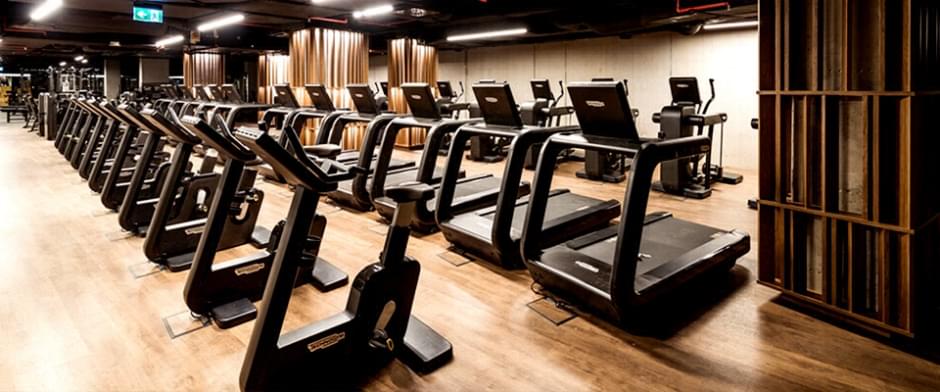
During your 12 week strength training program, you should gradually increase the weight, reps, and sets that you perform. Begin at the low end of your rep range and gradually increase the number of sets or reps each week. You will feel more intense if you add weight to your current workout.
Level 1
The first stage of a 12-week strength coaching program focuses upon fundamental strength training as well as proper movement patterns. It is designed to provide a strong foundation for advanced lifting. You will learn new motions in this phase. This phase also gives you the opportunity to lift more weight. This phase should be completed two to four times per week. However, more days can be beneficial.
At the end of each training session, you'll perform a decompression circuit that includes static and dynamic stretches. This circuit improves mobility and helps your body recover from intensive training. It takes only five minutes to complete. This allows the body to adapt to its surroundings outside the gym.

Tracking your macronutrients
To build muscle mass and lose fat, it's important to keep track of your macronutrients. If you know exactly how many calories your body consumes and how much of each, you can adjust your diet to maximize your results. You can also track your macronutrients to see if your macro diet meets your daily nutritional needs.
Tracking your macronutrients can be difficult, but it will make the process easier. Consider how much food you eat per day. Ideally, you should consume approximately 2,640 calories each day. This is 10% more than your usual calorie intake.
Exercises to build strength
When performing strength training exercises, there are many things you should remember. The duration of rest between sets is crucial to the success of the workout, and should be between thirty to sixty seconds. Intermediate lifters may prefer a longer rest period but can still add a few seconds in between sets to push themselves further. During the first week of a 12-week strength training program, alternating workouts A and B is an excellent idea.
One of the most basic exercises you can perform to build strength is the squat. This exercise strengthens your glutes. For a full workout, you should perform between 8 and 12 repetitions. Another exercise that is effective for building strength is the plank. This exercise is great for strengthening your back and chest.

Photos of progress
To help you track how far you have come in your 12-week strength training program you can take progress pictures. These are the steps that will ensure you take good progress pictures. First, decide a time and place that you are able to take progress photographs. Secondly, find a full-length mirror and make sure that the lighting is good. Third, make sure you wear the same outfit every time you take a progress picture. Next, be creative with your poses, such as flexing or relaxed.
Progress pictures are the first step in documenting a fitness journey. Your first set should be taken, followed by four more sets. You should try to take photos at the exact same time, with the same outfit and from the same angle. You can then compare your photos side-byside to see the changes. This can help to keep you on track and motivate you.
FAQ
How important is good nutrition?
Good nutrition is vital for our health. Healthy diets include whole grains, fruits and vegetables as well as lean protein and dairy. Eating nutritious foods helps us stay fit and active, which leads to better overall health.
Are there any exercises I shouldn't do?
Before you start any new exercise routine, it is important to consult your doctor. Some people have injuries or medical conditions that prevent them from doing certain types of exercise. Some activities also require special equipment. Swimming, for example requires a swimming suit and access to the water.
Do I need to eat before working out?
No. No. However, if you're hungry after working out, you might want to snack on something light like fruit or yogurt.
How exercise and nutrition can improve your quality of life
Exercise can help you lose weight, gain muscle mass and reduce stress. Nutrition is vital for energy, mood, sleep, and overall health. If you want to live longer, eat less meat, drink alcohol moderately, avoid smoking, and do regular physical activity.
Statistics
- In high-income countries, 26% of men and 35% of women were insufficiently physically active, as compared to 12% of men and 24% of women in low-income countries. (who.int)
- Physical activity confers the following maternal and fetal health benefits: a decreased risk of pre-eclampsia, gestational hypertension, gestational diabetes (for example, 30% reduction in risk) (who.int)
- According to the Centers for Disease Control and Prevention, chronic diseases cause 7 out of 10 deaths in the U.S., and treating chronic diseases accounts for 86% of U.S. healthcare costs. (mana.md)
- One study showed that adults who watch more than 4 hours of television daily had an 80% higher risk of death from cardiovascular disease. (heart.org)
External Links
How To
How to Stay Fit at Age 40
This article provides guidance for people who want to keep their bodies strong and healthy, even after turning 40. It provides some basic advice about how to eat right and exercise well as how to take care of your mental wellbeing. This article contains tips and tricks to live longer, healthier lives.
-
Eat right - It is important to eat the right food when you are trying to lose weight. You should steer clear of processed food products, and eat whole grains and fruits, vegetables, lean proteins, fish, eggs, nuts, seeds, beans and legumes. You can always add more to your diet if you don't enjoy what you eat. You won't lose weight if you don't eat as much. Try adding small amounts of different foods to your daily meal. If you eat chicken breast most of the time, try turkey one week. Or if you love pasta, try rice occasionally. You can make these foods a regular part of your daily diet.
-
Exercise - You should exercise at least three days per week. Cardio activities include running, swimming and biking. Make sure to get enough rest. Aim to sleep 8 hours per night. Drink plenty of water throughout the day. Try to drink 2 liters (0.5 gallons) of water every day.
-
Sleep Well - Getting adequate sleep is essential to staying fit. The National Sleep Foundation says adults need at least 7-8 hours of sleep each night to maintain their physical and emotional health. The majority of people sleep less than 6 hrs a night. Changes in your sleeping habits can make you more tired. You can catch more sleep by changing your sleeping schedule so that you go to bed earlier or wake up later. Turn off your phone prior to going to bed to help you wind down and relax. Avoid caffeine after noon as it can cause insomnia.
-
Take Care Of Your Mental Health - For a healthy body, it is important to take care of your mind. Stress can cause poor eating habits and unhealthy lifestyle choices. You should practice stress management techniques, such as yoga, meditation, breathing exercises, or relaxation. Try to spend one hour of your free time doing something enjoyable. This could mean taking a walk outside, playing sports, reading a book, listening to music, watching TV, etc.
These four steps will ensure you live longer. These four simple steps will help achieve your fitness goals.